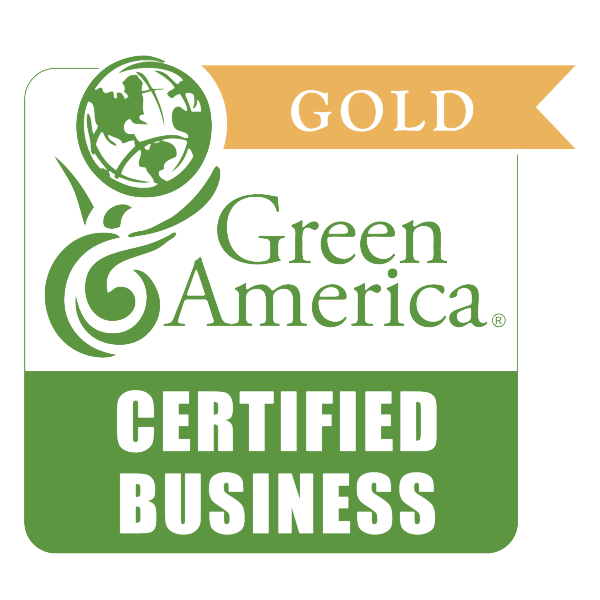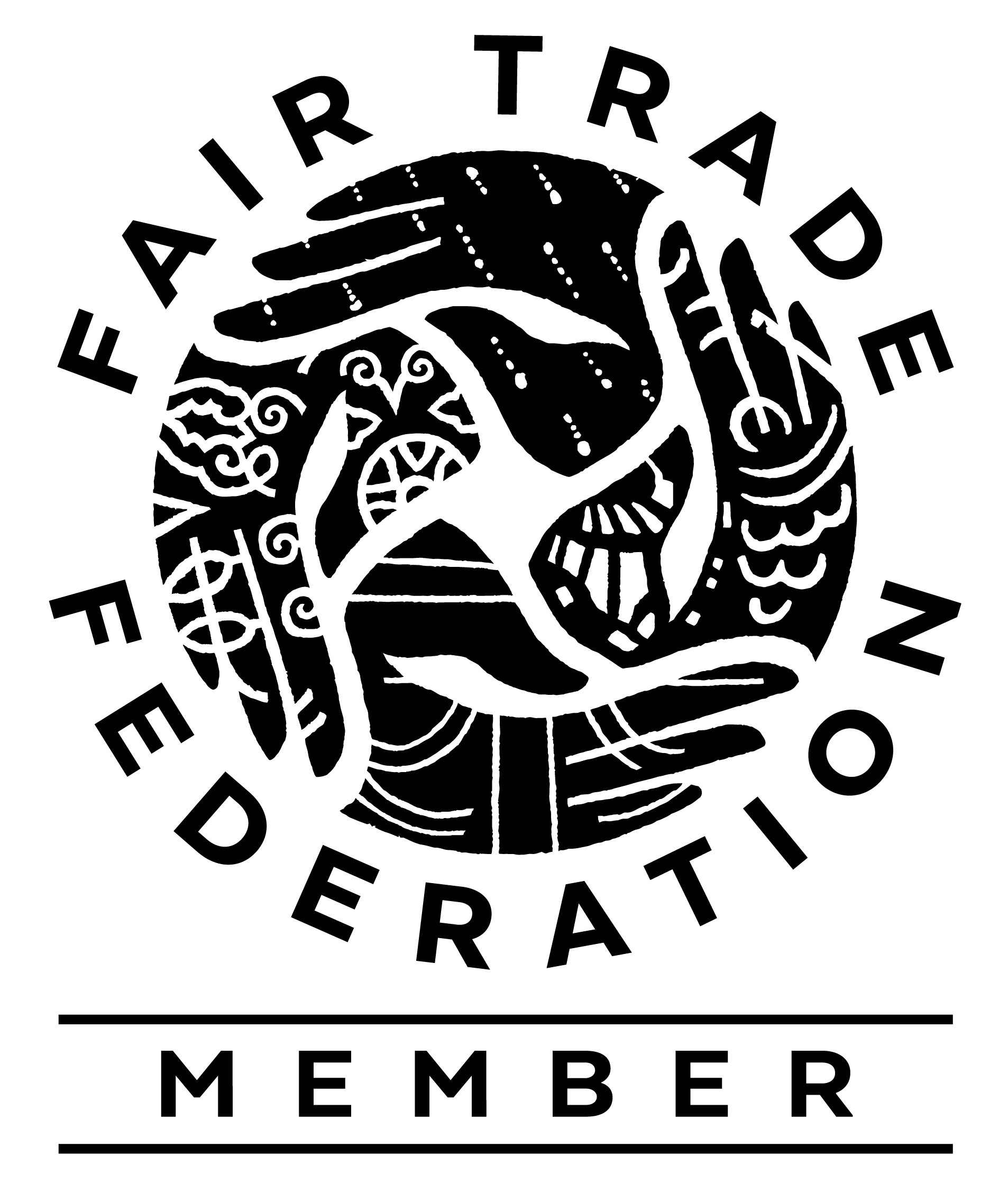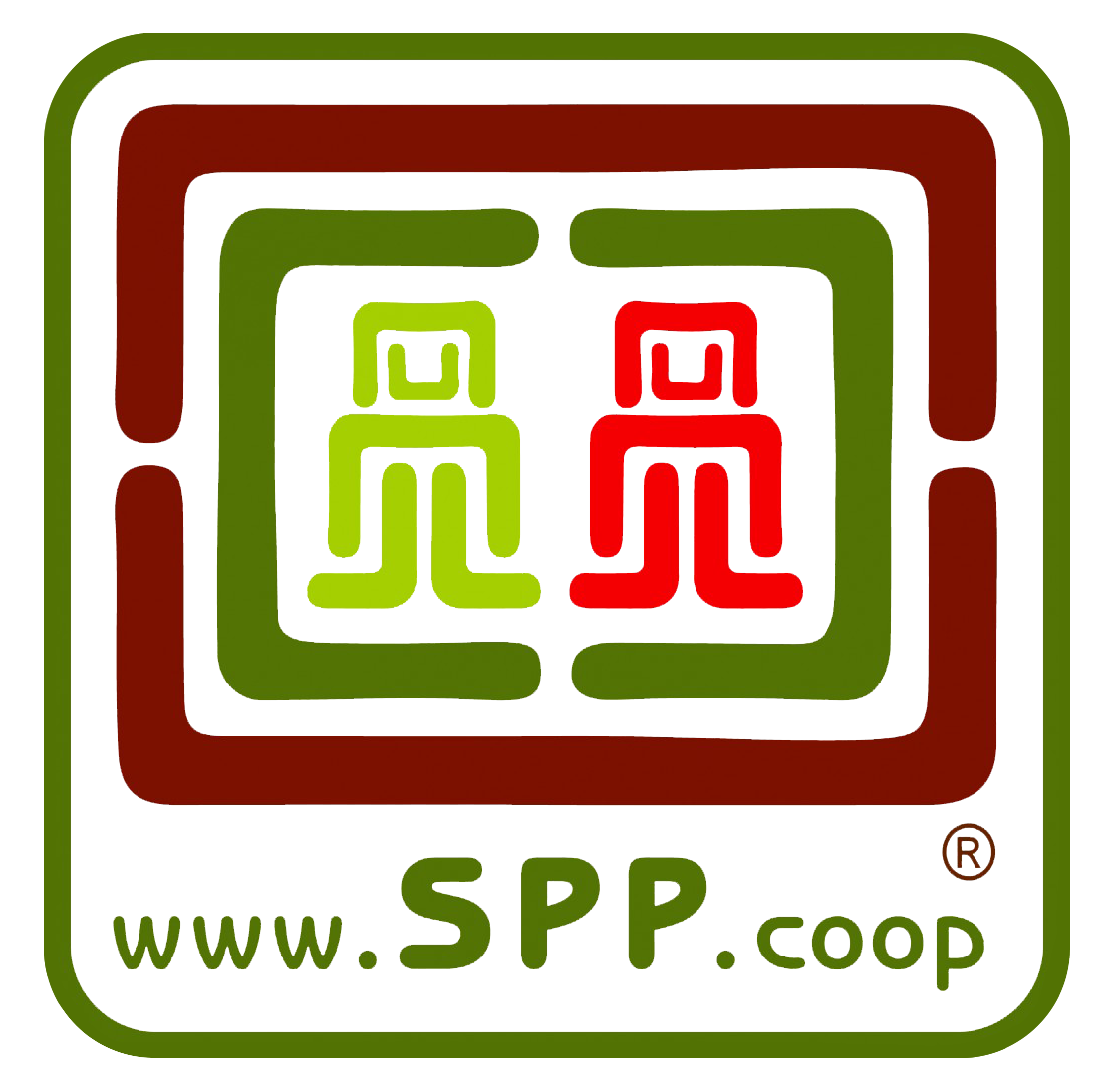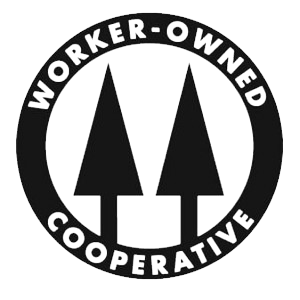Organic Vs. Conventional Coffee

Coffee lovers are discerning people, and there’s a lot to say about its many flavors, aromas, and origins – but one of the biggest differences between coffees is most striking before it even reaches your cup.
 It’s the difference between conventional and organic coffee. Even if you already choose organic in the produce aisle, you might wonder why it matters for your brew.
It’s the difference between conventional and organic coffee. Even if you already choose organic in the produce aisle, you might wonder why it matters for your brew.
To put things in perspective, coffee is one of the most widely traded commodities in the world – with over 12 billion pounds of coffee produced annually.
Meeting that demand is no easy task. So over time, farming methods have been developed to maximize production – but often at the expense of human and environmental health. What results is the non organic, conventional coffee that many are used to. So what’s the difference between that and organic coffee?
First, conventional coffee is among the most heavily chemically treated foods in the world. It is steeped in synthetic fertilizers, pesticides, herbicides, fungicides, and insecticides – a real mouthful with a bad taste. Not only does the environment suffer from this overload, but so do the people who live in it. Farmers are exposed to a high level of chemicals while spraying the crops and while handling them during harvest. The surrounding communities are also impacted through chemical residues in the air and water. These chemical presences are not just unpleasant; many are highly toxic and detrimental to human health.
In the case of organic coffee, there are no synthetic fertilizers or chemicals used in growing or production, which means cleaner beans, air, land, and water. The coffee is grown with only organic fertilizers, like coffee pulp, chicken manure, or compost. Organic farms also combat climate change by emitting less carbon than chemical farms, while also sequestering significant amounts of carbon. As a bonus, organic coffee beans are richer in healthful antioxidants, and many people can even taste the difference. Your health, and the health of the planet, both get a boost.
Second, most conventionally grown coffee plants are hybrids developed to flourish in open sun. Coffee naturally prefers the shade, but a crop grown in thick forest is more difficult to tend and harvest, and cannot be planted as densely.
Forests are cleared to make room for open fields in which to grow mass amounts of this sun-loving coffee variety. Production increases, but the wild ecosystem of flora and fauna is demolished. Natural pest-deterrents, like birds and lizards, are left without a habitat – and coffee-ruining insects overpopulate, leading to more pesticide use. And without the natural fertilizer of these ecosystems (bird droppings, leaf litter, and natural decay) the use of chemical fertilizer increases.
When it rains, the lack of tree cover means there is increased water runoff. Soil washes away, and with it go natural nutrients, eventually eroding and degrading the soil so much that growth is almost impossible. The rainwater carries away not just the soil, but all of the chemicals it has been treated with, and both end up in local water supplies.
 Most organic coffee is grown the natural way – within the shade of lush forests, providing a home for wild plants and animals, sustaining soil fertility, and keeping unique regional ecosystems alive. These forested farms also more resilient and better equipped to handle unusual weather patterns that are a result of climate change, making them a safer investment for farmers and their futures. Hundreds of thousands of acres of South American rainforests have already been demolished for various industries, but Equal Exchange has partnered with co-ops that are working to restore the land to its natural forested splendor while growing organic coffee.
Most organic coffee is grown the natural way – within the shade of lush forests, providing a home for wild plants and animals, sustaining soil fertility, and keeping unique regional ecosystems alive. These forested farms also more resilient and better equipped to handle unusual weather patterns that are a result of climate change, making them a safer investment for farmers and their futures. Hundreds of thousands of acres of South American rainforests have already been demolished for various industries, but Equal Exchange has partnered with co-ops that are working to restore the land to its natural forested splendor while growing organic coffee.
So what can you do? The organic coffee market has grown according to increased demand from people who want to drink something they can feel good about. Industries can and do change based on the choices that you make in the grocery store or at your favorite café – so you can vote with your mug! By purchasing organic coffee where you can find it (and demanding it where you can’t), you support systems that value healthy ecosystems, sustainable methods, and superior coffee. Now that’s good taste!
Sources:
- Barstow, Cynthia. The Eco-foods Guide: What’s Good for the Earth Is Good for You. Gabriola, B.C.: New Society, 2002. Print.
- Basic Standards for Organic Production and Processing. Tholey-Theley, Germany: IFOAM, 2000. Print.
- Benbrook, Charles. Core Truths: Serving Up the Science Behind Organic Agriculture: 2006 Compilation of Research. Foster, RI: Organic Center, 2006. Print.
- “Coffee in the Global Economy.” Global Exchange. http://www.globalexchange.org/fairtrade/coffee/faq
Related Posts
Funding Sustainable Futures Through Beekeeping
Mexico is the world’s top exporter of avocados (Produce Blue Book, 2019). Geographic proximity…
25 April 2014Coffee Prices: What Does Transparency Mean?
Buyers, importers, roasters and consumers of specialty coffee are having a big and important conversation…
25 April 2014







Charles Matthews | 12th Jan 22
Is it harder for farmers to combat things like coffee rust and other issues when attempting to be organic? I’ve also read that coffees which are more naturally resistent to bugs are higher in caffiene, so would organic coffee actually be more bitter than non-organic?
Bethany McGinnis | 13th Jan 22
Hi Charles, thanks for your great questions. You’re exactly right about organic farming being an added challenge for farmers. By committing to growing without chemicals and pesticides farmers have lower yields and need to get creative for keeping pests and fungus at bay. Here’s an article you might enjoy reading about our farmer at COMSA in Colombia using different methods to achieve better organic farming results: https://equalexchange.coop/blog/talking-dirt-in-colombia
As for the bitterness factor, our coffee quality team works hard to develop blends that are not bitter, so although we can’t speak for all organic coffees, we pride ourselves on offering a variety of different taste profiles to suit different preferences. If you’re looking for an organic coffee with a smooth, creamy, balanced taste I’d recommend our Organic Mind, Body and Soul coffee which is extremely tasty and very popular: https://shop.equalexchange.coop/collections/packaged/products/organic-mind-body-and-soul-coffee-12oz
Thanks for reading!
Dawn | 15th Dec 21
So, when you say, “There are no threats of mycotoxins in the coffee purchased,” what exactly does that mean? Does that mean that the levels are below a certain threshold? Or does it mean that your coffee is mold- and mycotoxin-free? If you mean below a certain thresh hold, what is the actual level of mycotoxin, or what is the thresh hold? Thank you.
Bethany McGinnis | 16th Dec 21
Hi Dawn, I checked with our Food Safety team and they have said that The FDA in the United States has not stated an “acceptable” threshold of mycotoxins for green coffee.
One step in our verification that the coffee is “clean” is by a visual inspection of the green coffee, in accordance with Specialty Coffee Association (SCA) standards. If samples of green coffee were ever moldy, the lot of coffee would be rejected.
The green coffee we sent for analysis was coffee that was considered “clean” and the lab results showed there were non-detectable levels of Aflatoxin B1 B2 G1 G2 or Ochratoxin A.
The development of mycotoxins occur from improper processing or handling practices, especially at large industrial sites. Equal Exchange works closely with small farmer partners to ensure best practices are implemented and the coffee being delivered is high quality.
Brian | 9th Dec 21
Does Equal Exchange test for mold and mycotoxins?
Bethany McGinnis | 9th Dec 21
Hi Brian, Equal Exchange is exploring implementing a monitoring program for mycotoxins. We have sent samples from multiple origins for mycotoxin testing and the results have shown there are no threats of mycotoxins in the coffee purchased.
Each lot of green coffee (unroasted) sourced by Equal Exchange undergoes a Specialty Coffee Association (SCA) Standard quality evaluation, including a visual examination for mold or fungus, which are the key indicators for the potential presence of mycotoxins.
Anthony Fox | 18th Sep 21
Since sulfite is used to prevent degradation of coffee and loss of color, is it added to organically grown coffee?
Bethany McGinnis | 20th Sep 21
Hi Anthony, Equal Exchange’s organic coffee does not contain any sulfites. This is true on both the farming side as well as the roasting and production. Our bags are nitrogen-flushed and have a valve to let Carbon Dioxide escape but not let oxygen in to maintain freshness. Thanks for asking!
Mike | 19th Aug 21
What about low acid coffee? Does it taste the same?
Bethany McGinnis | 19th Aug 21
Hi Mike, Some coffees do taste more acidic than others but have similar pH. Acidity is best described as the bright and zesty sensation found in coffee. It can range in intensity from low (gentle) to high (striking), depending on the origin, cultivation, processing, and roasting of the beans.
It’s important to note that the acidity described in coffee is actually “perceived acidity” and is not related to the pH of the coffee itself, a measure of how acidic or basic a substance is.
The pH range goes from 0 – 14; 7 is neutral. When the pH is less than 7, that indicates acidity, whereas a pH of greater than 7 indicates a base. Really, pH is a measure of the relative amount of free hydrogen and hydroxyl ions. Coffee has a pH of 5.3, which is similar to white rice or beer. The following has been known to reduce the pH (slightly) and the perceived acidity (i.e. acidic taste):
– Darkly roasted coffee (any of our coffees described as “French roast” – including the aptly named French Roast, as well as our Midnight Sun, for example)
– Coffee grown at a lower altitude (1500 feet or 500 meters is an example) This is likely to be a “robusta” variety, which we do not carry
Julia | 1st Jun 21
Do the organic coffee farmers still have to follow organic requirements after the coffee is harvested? Or can they use fungicides, pesticides etc. after it’s harvested? Just curious if they still have strict rules or guidelines to follow in the processing stages after harvest?
Bethany McGinnis | 2nd Jun 21
Hi Julia, thanks for your excellent question. The short answer is, yes, there are still a myriad of requirements to adhere to under organic certification post harvesting. Here are a few ways that happens:
– Processing plants & export facilities that hold organic certifications are audited just like the farmers and just like Equal Exchange. They are another part of the organic chain.
– Organic coffee processing must occur at a plant that is certified. If the plant also processes conventional coffee, then the plant must first switch to organic by “flushing the system” with some organic coffee. They toss that, and then proceed with the rest of the organic processing.
– In recent years its also become more common to have labs test incoming coffee containers for glyphosate. Glyphosate is a chemical compound that is known to be in Roundup.
This is also why it’s important for coffee buyers to visit their producers and verify each step of the way themselves. When Equal Exchange contracts directly with the coops we ask for all the certifications. This means the certifications from the coops (which includes the farmers), and the processing facility etc. Equal Exchange’s coffee roasting facility is also regularly evaluated to be sure that we are storing and roasting the coffee here in a way that is in accordance with organic certification standards.
Sharron Godbold | 4th Mar 21
What about the bugs? Does organic ground coffee have less bugs in it? Cockroaches?
Lynn | 4th Oct 20
I tend to agree, from what I have been told by coffee experts, that good coffee tends to be organic though not certified because of the expense. Spraying and such changes the flavor so why would they do it? I don’t see much input here to addressing the fact that a lot of coffee, at least from small suppliers, is indeed organic.?
Rachel Oswald | 6th Aug 20
what cooperatives were you referring to and how accessible are they to small farmers?
Kate Chess | 10th Aug 20
Hi Rachel. At Equal Exchange, we only buy coffee from democratically organized farmers co-ops and associations. Small-scale farmers in Latin America formed these groups themselves in order to have more negotiating power and in order to provide members with technical support and, in some cases, centralized processing. You can read about the specific farmer groups and co-ops we work with here: https://equalexchange.coop/our-partners/farmer-partners
Matthew Falber | 16th Mar 20
Hi! I appreciate your article but I’m inclined to disagree. I’d love to discuss this with you more. I can only speak to coffee producing in Guatemala but, I feel organic certification is too expensive for most coffee producers, not because of the way they produce it, but because of the cost you must pay to receive a certification. I also feel the certification process isn’t very thorough and that there are farms that are producing more environmentally friendly coffee on non-organic farms. Rainforest Alliance is a much better certification but again, it’s too expensive for most small farmers.
Kate Chess | 17th Mar 20
Hi Matthew. Thanks for sharing your thoughts. I reached out to our Green Coffee Buyer Kim, who had this to say:
Regarding cost of certifications:
– Yes, certifications are expensive, especially when taken on by an individual farmer. With cooperatives, the coop becomes certified and supports farmers transition (if needed) over a period of three years. The cooperative supports all (or a %) of their farmers maintain the certification & the agronomists are tasked to support the farmers comply with the standards set by the cert.
The certification world isn’t perfect, but it offers businesses and consumers a way to vote with their dollar and support farmers’ efforts to protect the environment and maintain a more diverse ecosystem.
Regarding farms that are producing more environmentally friendly coffee on non-organic farms:
-While this may be true, see below re: Fair Trade and Organic trade standards. The environment is important to us, but what is more important is that we support entire communities & cooperatives by offering fair prices, long-term relationships, & financing — providing a pathway for coffee farmers to not just survive but thrive.
Regarding Rainforest Alliance:
– According to Rainforest Alliance’s (RA) website, the RA standard goes beyond organic in a number of critical sectors, including wildlife conservation and worker welfare. While that may be true on certain farms, like any certification, some cooperatives and farms take certifications more seriously than others. Some will do the minimum amount to comply with standards, while others go above and beyond.
Yet compared to Fair Trade, Rainforest Alliance lacks several critical key components including trade standards. There are no requirements for buyers to pay minimum or fairly negotiated prices, develop long-term relationships, or offer financing. If you ask any of the cooperatives that we work with, these are incredibly important as they enable the cooperatives to plan based on Equal’s projected purchases. Offering financing is one of the most important aspects because it offers the cooperative 70% of the contract value to pay their farmers “pre-harvest financing”. This helps guarantee that farmers will not sell to intermediaries, and ensures the cooperatives are able to fulfill contracts with buyers.
In my eyes, one of the biggest differences between RA & certifications like FLO & Organic is that RA offers no minimum or guaranteed price. Ultimately price is the vital lifeline that makes all of this possible. If prices are too low, (as they are with conventional coffee now) some farmers will not bother even harvesting their coffee if they know they will not break even.
All in all, I see RA as a program that is focused solely on management of on-farm environmental resources (which is still good) with some social standards for workers on farms. Because of its on-farm focus and lack of trade standards, it is more naturally suited for larger farms rather than the small producers that are at the core of the fair trade movement.
Marvin Benadavid | 22nd Dec 19
Does regular or decaf coffee have the highest concentration of potassium? This is relevant for coffee lovers with chronic kidney disease.
Kate Chess | 27th Dec 19
Sorry, Marvin — potassium isn’t something we test for, so I can’t answer definitively. But according to an article by the National Kidney Foundation, coffee is considered a low-potassium food if consumed in moderation: https://www.kidney.org/newsletter/coffee-and-kidney-disease
Jim Lynch | 1st Dec 19
Can you share stats & sources of the fatalities and illnesses linked conclusively to these nasty, ugly things attributed solely to the consumption or production of conventionally produced coffee?
Dan Goebel | 31st Jul 19
I am a strong flavor lover, so I get the Equal Exchange Organic French Roast. I also like using the pods with my Keurig, so the flavor is more fresh/bold. Enjoy!
Robert J Cuillo | 7th Jul 19
Why does organic coffee taste much weaker than conventional coffee?
Kate Chess | 8th Jul 19
If it’s brewed correctly, it definitely shouldn’t! Check the proportions of coffee to water that you’re using and make sure you’re using an appropriate grind for your brewing method. If that doesn’t help, try a dark roast for a bolder flavor.
Linda | 25th May 19
Where can I buy organic green beans?
Kate Chess | 28th May 19
We only sell roasted beans — good luck with your search!
Claire | 24th May 19
I have been told that many coffee roasters do not seek out the Organic Certification, because it is very pricey, and then they would have to transfer that cost by paying the farmers less. Is there a way they show are Organic, even if they don’t acquire the cert?
Kate Chess | 28th May 19
Hi Claire — it’s true, certifications are costly. All Equal Exchange coffee that says Organic IS certified organic, but it’s definitely a considerable expense.
Mary Gates | 30th Mar 18
Where do we buy organic coffee?
Kate Chess | 5th Apr 18
We have many varieties of Organic coffee to choose from here: https://shop.equalexchange.coop/collections/organic-coffee
William | 22nd Sep 17
As small batch coffee roaster in Newburgh Indiana I appreciate that although a bit more expensive, the benefits far outweigh the cost.
Connie | 14th Jul 17
Thanks so much for the very helpful info! Am switching to organic after reading that!
Fiorella | 24th Jun 17
Please any brand of good organic coffee?
Gary Goodman | 26th Sep 17
You can try Equal Exchange brand coffee.
Chemex 101: Brewing Tips and Advice From a Coffee Novice | Downshiftology | 7th May 17
[…] what I can say is do pay the extra and buy organic coffee. Conventional coffee is one of the most heavily chemically treated foods in the world. So I choose quality over […]
Jan | 28th Mar 17
Can anyone recommend a great organic coffee?
Laura | 20th Mar 17
First cup of organic coffee.
LOVE IT!!! Will never buy conventional again.
Mads | 17th Feb 17
Thank you for this!